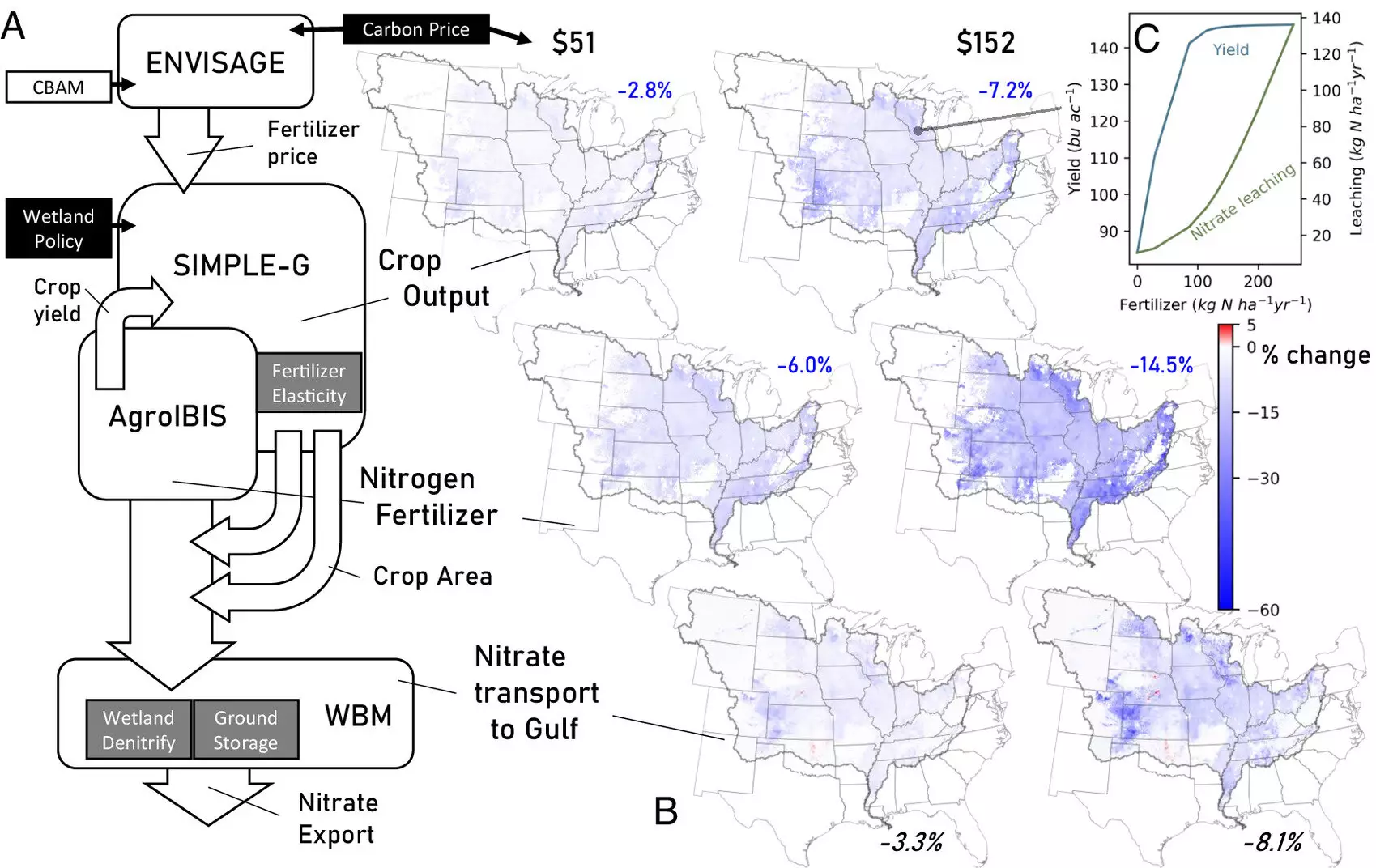The University of New Hampshire conducted a study to examine the potential effects of additional costs, known as social costs, added to fossil fuels in agriculture. The research aimed to investigate the consequences of implementing climate policies on reducing carbon dioxide (CO2) emissions and improving water quality. By exploring the impact of assigning social costs to fossil fuel prices, the study shed light on the potential benefits of reducing excessive fertilizer runoff and decreasing the Gulf of Mexico’s dead zone. This article will examine the findings of the study and its implications for climate change mitigation and water quality improvement.
Examining the Effects on Agriculture
The study, published in the journal Proceedings of the National Academy of Sciences, employed various models to analyze the influence of climate change mitigation policies on agriculture and water quality. Researchers considered data from the global economy, U.S. agricultural economies, agroecology, and hydrology. By assigning social costs to fossil fuel-based CO2 emissions, the policy aimed to increase energy costs and raise the price of nitrogen fertilizer production.
The models demonstrated that implementing this climate policy could lead to a significant reduction in fertilizer application for corn production across the Mississippi River Basin. Moreover, there could be a noticeable decline in fertilizer loss to the environment. Corn and soybean production may decline by approximately 7%, resulting in a 6% increase in crop prices. Nitrate leaching, one of the main contributors to water contamination, could also decrease by around 10%. These findings indicate that the policy has the potential to enhance water quality while addressing climate change.
Impact on Carbon Emissions
The study’s models projected that carbon emissions in the U.S. could decline by 29% to 50% under this range of climate policies. The reduction in emissions would depend on the stringency of the carbon pricing implemented. The research indicated that these emissions reductions align with the commitments outlined in the Paris Accord, representing a significant contribution to global carbon emission reduction goals.
In addition to analyzing the impact of social costs on agriculture, the researchers also considered the potential benefits of wetland restoration in reducing nitrogen loading and mitigating hypoxia in the Gulf of Mexico. The results revealed that targeted wetland restoration scenarios have the potential to double the effect of low to moderate social costs of carbon. This finding emphasizes the importance of considering multiple approaches to addressing water quality issues in conjunction with climate policies.
These findings have important implications for policymakers and stakeholders in the United States and beyond. Implementing a carbon price that reflects the social cost holds the potential to fulfill the country’s commitment to the Paris Accord while significantly improving water quality. By reducing excessive fertilizer runoff and decreasing the dead zone in the Gulf of Mexico, the policy offers a multifaceted approach to addressing environmental challenges.
Moreover, the study highlights the importance of considering alternative strategies for reducing contamination and improving water quality. The inclusion of wetland restoration in conjunction with climate policies can amplify the benefits and contribute to more effective mitigation efforts. By adopting a holistic approach that combines climate change mitigation and water quality improvement, policymakers can make substantial progress in addressing pressing environmental concerns.
The research conducted by the University of New Hampshire underscores the potential benefits of incorporating social costs into fossil fuels in agriculture. By reducing CO2 emissions and improving water quality, such climate policies have the potential to mitigate climate change and enhance environmental sustainability. The study’s findings offer valuable insights for policymakers and stakeholders seeking effective strategies to tackle the challenges posed by greenhouse gas emissions and water contamination. By implementing comprehensive policies that integrate both climate change and water quality goals, societies can work towards a more sustainable and resilient future.



Leave a Reply